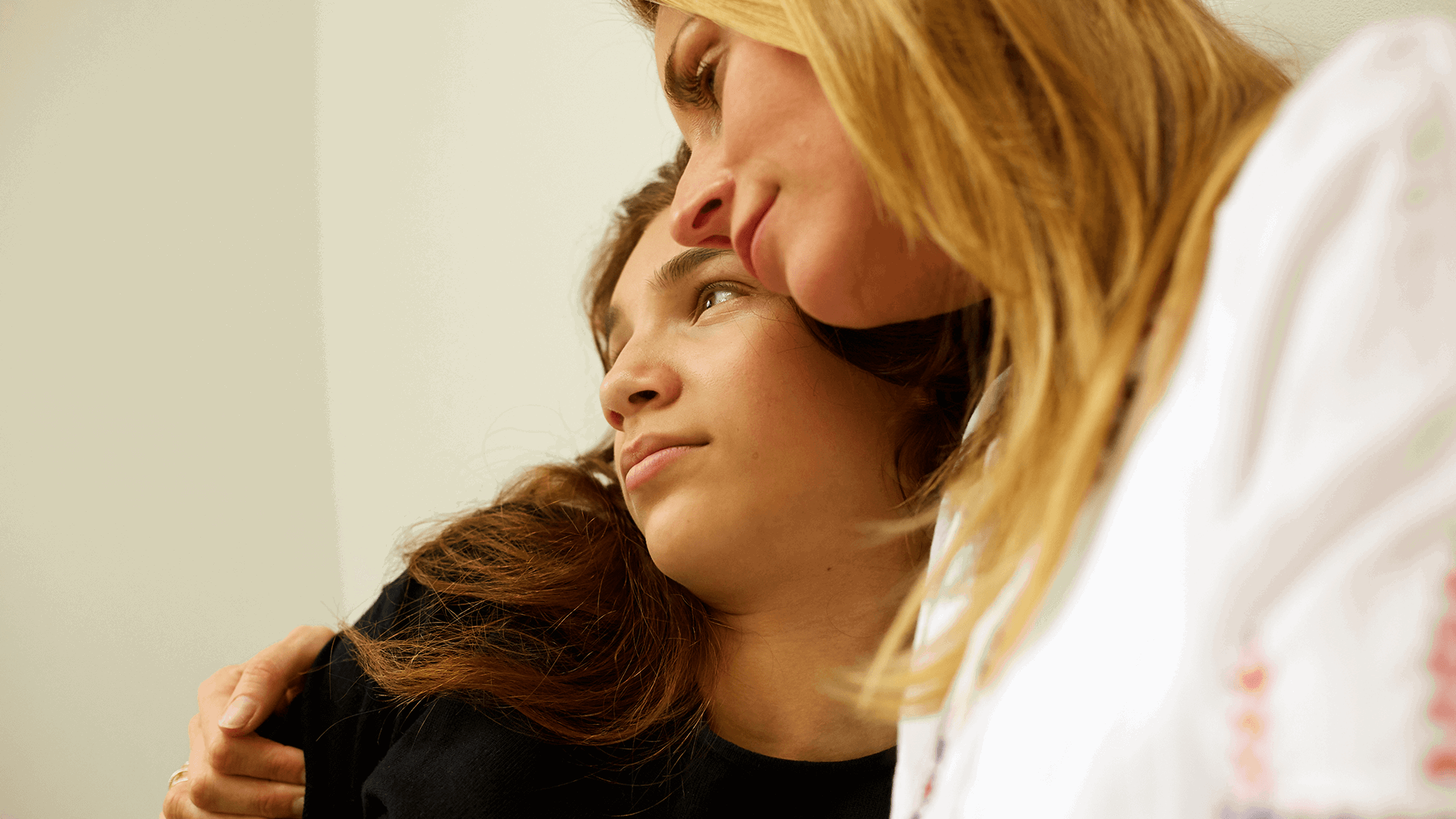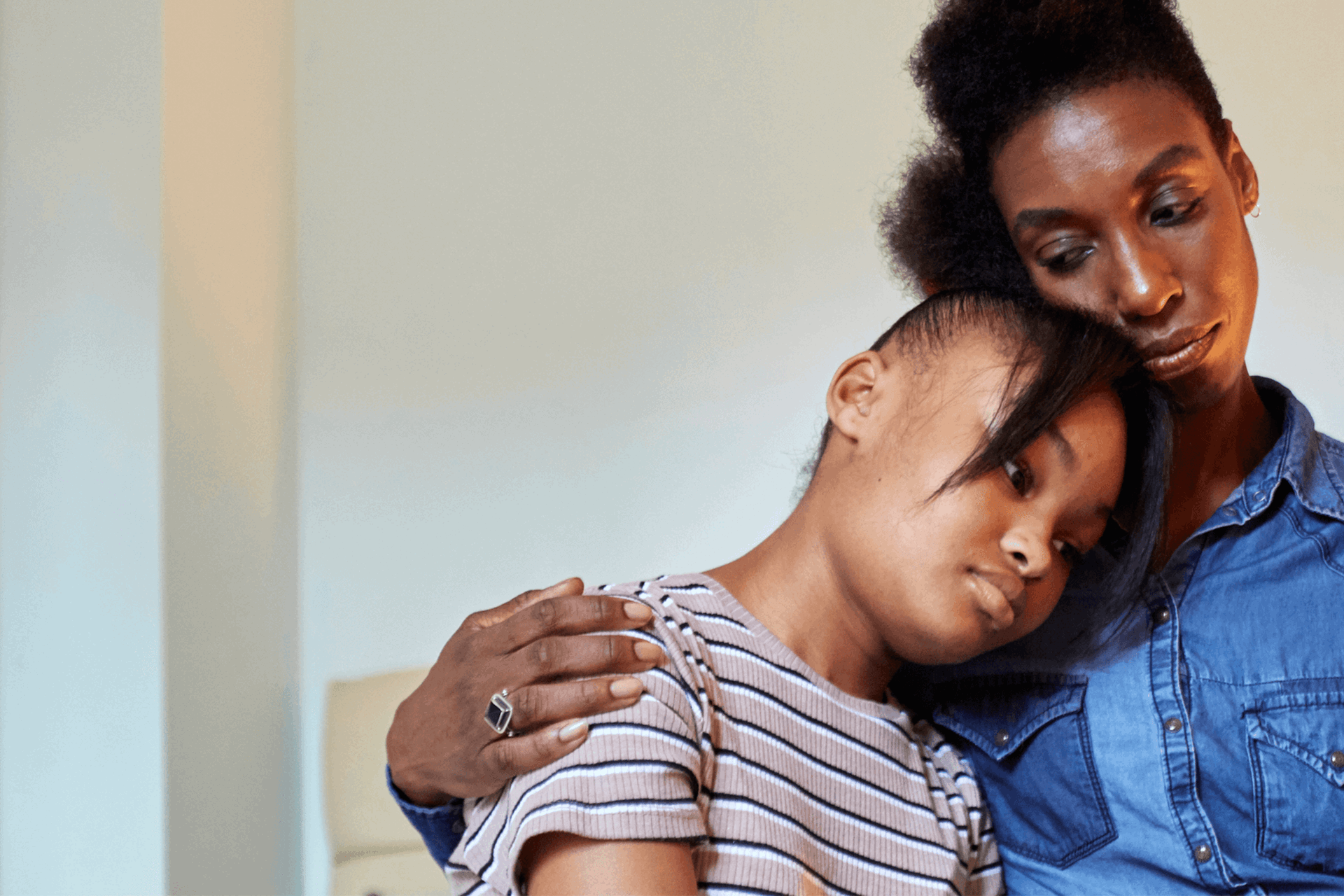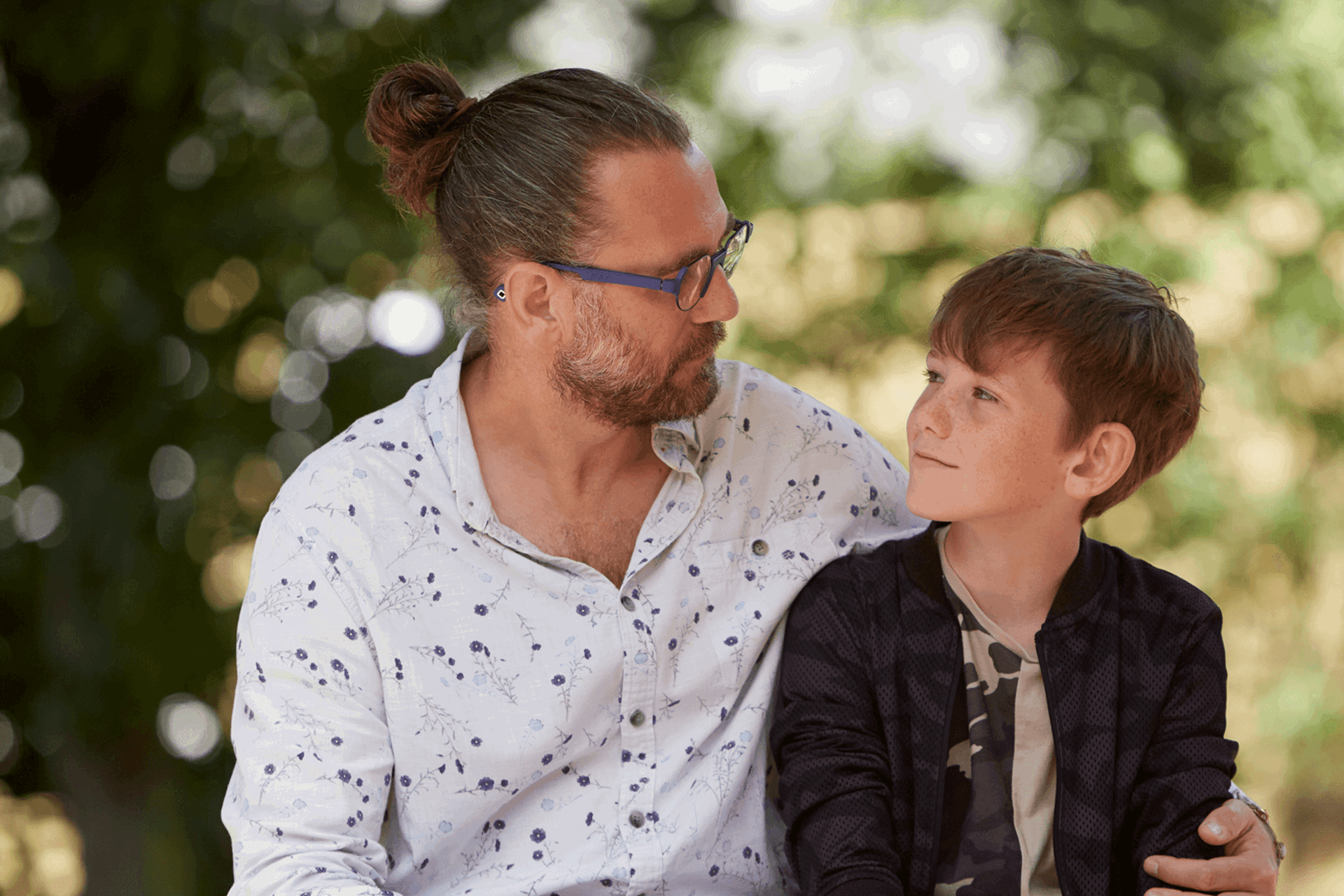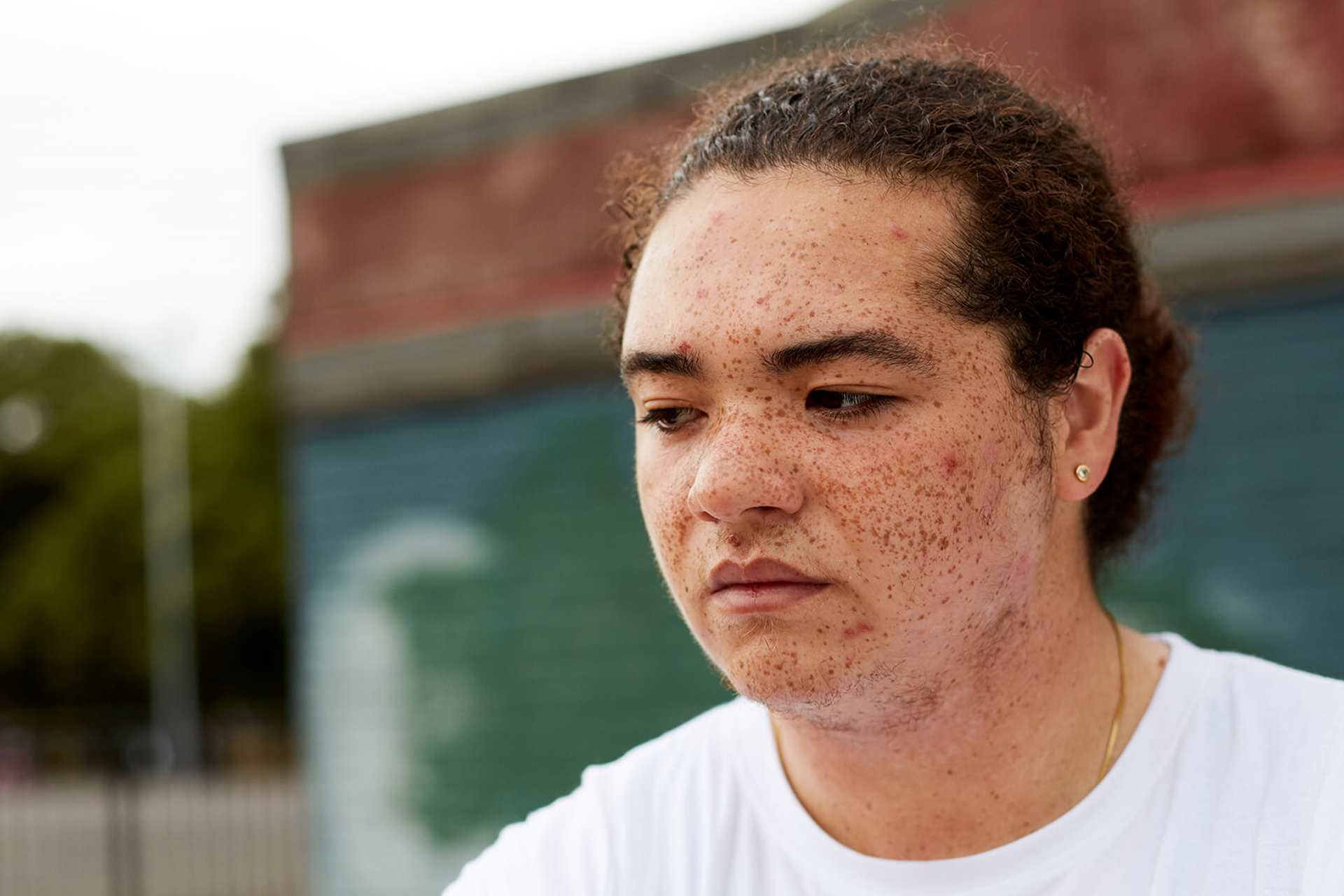What is a GP?
A General Practitioner (GP) is the doctor who provides overall care for your child’s physical and mental health. GPs are usually the first place to go to access mental health support through the NHS. They can explore what’s going on for your child, and suggest things that might help. They can also make referrals to specialist NHS and other local services.
We often think of a GP looking after our physical health, but it’s important to remember that mental health is just as much a part of a GP’s job – and that the doctor will be used to supporting people in this way.
Your child might be feeling low or anxious, or struggling with upsetting thoughts, self-harm or eating problems. However they’re feeling, if your child is experiencing thoughts or behaviours that are affecting their daily life, speaking to a GP can be a good first step to finding the help they need.
Your GP is really experienced at talking to and supporting young people and they can be an invaluable resource.
What can the GP help with?
During an appointment, the GP will talk to your child to find out how they’re feeling, explore what might be causing them to feel this way and discuss what type of support they need. They can also answer any questions you or your child have.
The GP can:
-
Offer guidance around strategies or self-help resources your child can try.
-
Suggest counselling or therapy, and refer your child to an NHS or other local counselling service.
-
Find local mental health support groups, and/or local charities offering support such as mentoring or drop-in sessions.
-
Refer your child to the NHS service for young people’s mental health, called CAMHS. They can also refer them for an assessment or specialist treatment with another service such as a paediatrician or psychologist team, or to NHS adult mental health services.
-
Discuss medication options where relevant if your child is 18 or older. If your child is under 18, they should only be prescribed medication by a psychiatrist (a doctor specialising in mental health), and only alongside talking therapies or another psychological treatment.
-
Provide notes explaining any absences from school or work if needed.
You can also ask the GP to provide follow-up appointments so they can see whether things are improving or getting any worse. This can be especially helpful if your child is on a waiting list for more support. In this situation, a GP can do check-ins and look out for any signs that the situation is worsening, which may mean your child can be seen more quickly.
If your child has already been referred to a service like CAMHS and they are waiting for an assessment, your GP can help by supporting the referral. You can find out more about accessing CAMHS services in our parents' guide.
Going to the doctors to discuss how I’d been feeling was a scary thought, but I knew that only positives could come from it.
How can I make a GP appointment for my child?
You can make an appointment at the surgery where they’re registered, or find a new GP near you. You can arrange an appointment by phoning, using the surgery's online form or going into the surgery. It's a good idea to ask whether your child can see a GP who specialises in mental health or in working with young people. There might not be one at the surgery, but it's still okay to ask.
It's also helpful to ask your child whether there's a particular GP they would like to see. There might be a doctor they already know who they feel comfortable with. Or they might find it easier to talk to someone they don’t know. They might also feel more comfortable speaking to someone from the same cultural or faith background as them. If this is the case, ask the surgery if they can provide this.
If you are concerned about your child’s mental health and they need to be seen before the next regular appointment is available, you can request an urgent on-the-day appointment by calling the surgery. GPs provide urgent appointments each day, and these are as much for mental health concerns as physical health issues.
In this situation, you can also call NHS 111 and select the mental health option, or use 111 online. 111 can provide urgent advice and tell you where you can get help.
If your child is in a crisis or you are worried they are not safe, we have information on how to access urgent help.
- by providing a chaperone (someone to go with your child) for their appointment
- by providing a BSL (British Sign Language) interpreter
- by providing information in a way that is more accessible if they have a disability, impairment or sensory loss - this might be the format your child needs information in, the best way to contact them, or ways to support their communication needs.
- by making the surgery accessible if they have a disability, impairment or sensory loss
Preparing for a GP appointment
Some teenagers and young people might prefer to see a doctor by themselves. In this case, you can show them our guide for young people. This is full of tips to help them prepare.
If you have a younger child, or your young person would like you to come too, have a think about what you'd like to say and ask beforehand. It's a good idea to make some notes and take these with you.
What can I do if my child doesn’t want to see a GP?
For your child, opening up to a doctor about their mental health might feel daunting, anxiety-provoking or even like an impossible idea. They might be embarrassed or ashamed about how they’re feeling, or worried about being judged or not knowing what to say.
If your child’s not sure about talking to a GP, you can:
Young people can find it hard to explain what’s behind their feelings, so the first step is often to open up a conversation about what’s going on. You might want to do this while out on a walk, or while doing another activity your child enjoys, as this can help your child to feel more relaxed and make talking easier.
If they can tell you why they don’t want to talk to the GP, show them you understand why it’s hard. For example, you might say: ‘It’s a big thing to open up to someone you don’t know, I find that hard too’.
If they can’t tell you what it’s about, gently suggest some ideas. For example, by saying: ‘I wonder if you feel like you won’t know what to say to the GP?’, or ‘I wonder if you feel like the GP won’t be able to help?’
Depending on what specific worries your child is able to tell you about, this could be things like:
- giving them more information about what will happen during the appointment, and the types of support the GP might offer them
- offering them a different doctor to speak to
- doing the appointment over the phone (this can be over speaker-phone if they would like you to be involved in the conversation)
- thinking through what they’re going to say with you beforehand, or taking notes with them
- you going to the appointment with them
- you telling the doctor what’s going on, after agreeing together what they’d like to say
- going by themselves if they think this would make it easier to open up
- you taking them to the appointment but waiting outside
It can help to hear that even though what they’re going through feels new for them, it is very likely that the GP will have seen other people with similar problems. Lots of young people and adults go to the GP for support with their mental health, and this is a normal part of a GP’s job.
Talk about some of the specific things you’ve noticed and are worried about. For example, you might say, ‘I’ve noticed recently that you seem really down, and I want to find some support that will make things better’.
Sometimes, it’s too much for a young person to make the choice themselves and it might be reassuring for you to take the lead. Let them know you can see they’re struggling and need support, and you’re going to help them get to this appointment.
If your child will not see a GP, you can always call the GP yourself for information and advice – even if your child won’t go to an appointment.
You could also ask your child if they would find it easier to open up to another professional, such as a counsellor or therapist. Our guide to counselling outlines how you can access local services.
If your child finds aspects of going into a GP surgery overwhelming or anxiety-provoking, you can ask the GP to make adjustments such as:
- dimming the lights in the room
- letting them wait somewhere quiet, or letting them wait outside the surgery and calling them in when the GP is ready
- offering a phone appointment
This video explains the steps you can take if your child is finding it hard to ask for help.
GPs are there for you as well. Inevitably when you are supporting a child with mental health difficulties, you will have times when you need to speak to someone and your GP will be able to understand and support you too.
How does confidentiality work at GP appointments?
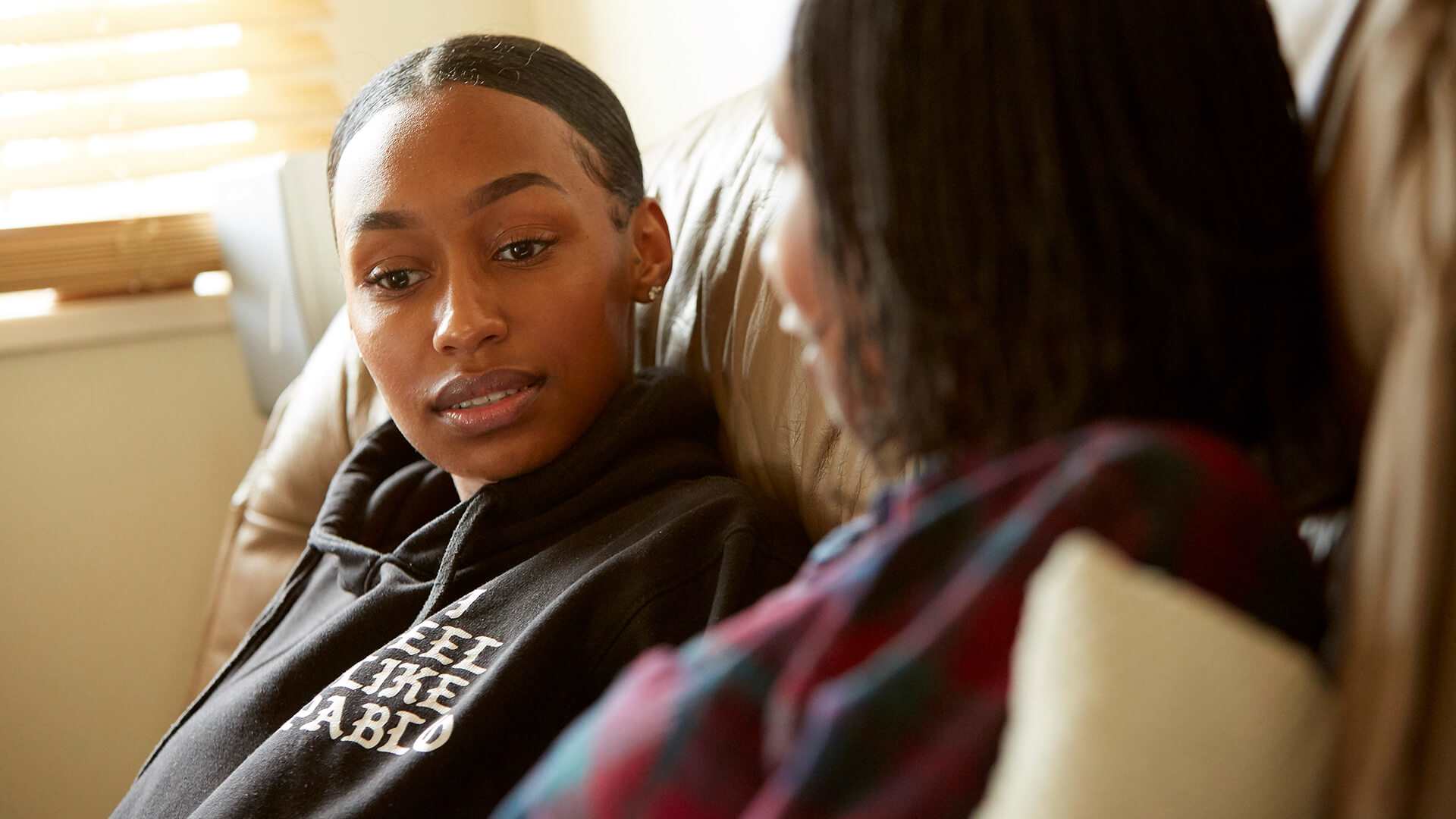
If you have an older child and they go to see the GP by themselves, the appointment will usually be confidential. This means the GP will not tell anyone else about it without your child’s consent.
The GP will usually encourage a young person to talk to their parents or carers about how they’re feeling. They can also offer to do this on your child’s behalf if your child doesn’t feel they can tell you themselves.
The GP will not keep information confidential if they are concerned about your child’s safety, even if your child doesn’t want them to tell anyone. This might be, for example, because they are worried that your child is feeling suicidal or is at risk of seriously hurting themselves, or because your child tells the GP they are being harmed by someone else.
If you are unhappy with the GP’s support
It can feel upsetting when your child takes the significant step of seeing a GP and doesn’t get what they need from the appointment, or doesn’t feel comfortable with the way the doctor has handled it.
If you don’t feel the GP is taking enough action or taking the concerns seriously, you can ask the surgery to book your child another appointment with a different GP. It can sometimes be really useful to get a second opinion. It might also help to ask whether there is a GP at the surgery who specialises in mental health, or in working with young people.
You can also have a look at other mental health support that might be available locally for your child in our guide to getting help.
You might also find this helpful
We've got information and advice on other places where your child can access mental health support.
Useful helplines and websites
While we take care to ensure that the organisations we signpost to provide high quality information and advice, we cannot take responsibility for any specific pieces of advice they may offer. We encourage parents and carers to always explore the website of a linked service or organisation to understand who they are and what support they offer before engaging with them.
-
YoungMinds Parents Helpline
We support parents and carers who are concerned about their child or young person's mental health. Our Parents Helpline provides detailed advice and information, emotional support and signposting.
You can speak to us over the phone or chat to us online.
You can speak to us over webchat between 9.30am and 4pm from Monday-Friday. When we’re closed, you can still leave us a message in the chat. We’ll reply to you by email in 3-5 working days.
- Opening times:
- 9.30am-4pm, Monday-Friday
-
NHS 111
To get urgent mental health advice from the NHS, call 111 and select the mental health option. 111 will tell you where you can get help. They may also be able to put you through to a trained mental health professional over the phone.
111 can support anyone who is feeling unsafe, distressed or worried about their mental health. They can also give information and advice about what to do if you're worried about someone else.
If you would rather get help online, you can use 111 online.
- Opening times:
- 24/7

This page was reviewed in January 2023.
It was created with parents and carers with lived experience of supporting their child or young person with getting help from the GP.
We will next review the page in 2026.
YoungMinds is a proud member of PIF TICK – the UK's quality mark for trusted health information.
Whether you love the page or think something is missing, we appreciate your feedback. It all helps us to support more young people with their mental health.
Please be aware that this form isn’t a mental health support service. If your child is in crisis right now and you want to talk to someone urgently, find out who to contact on our urgent help page.
At YoungMinds we take your privacy seriously. If you’d like to read more about how we keep the information we collect safe, take a look at our privacy policy.
